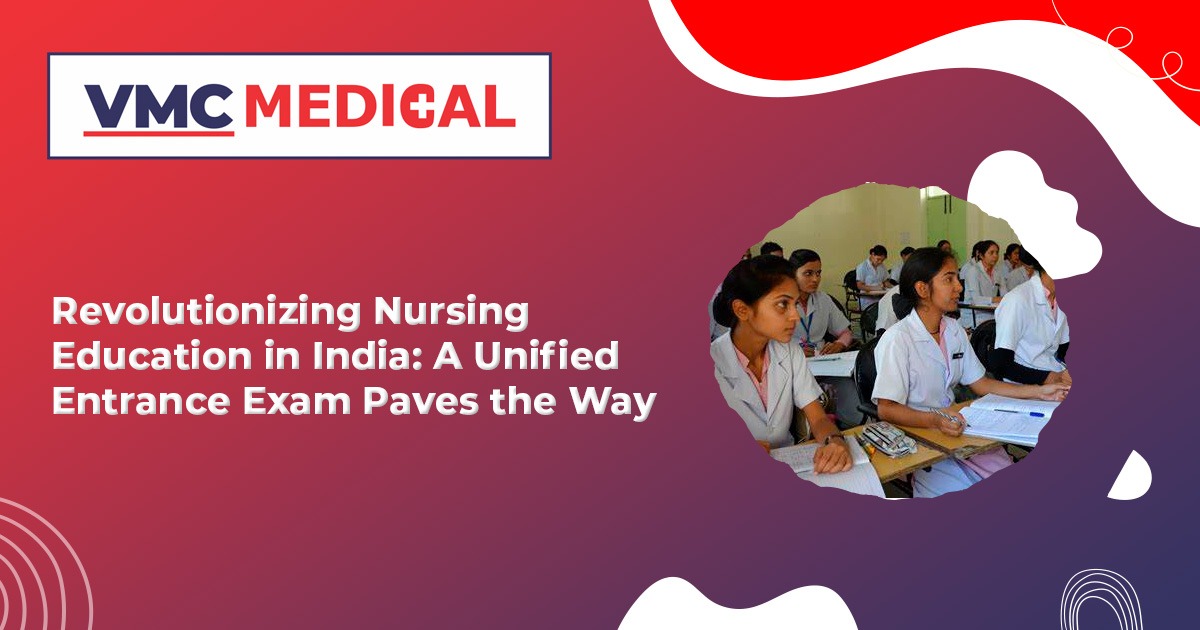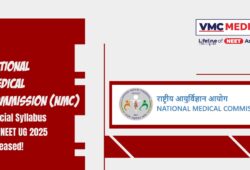Revolutionizing Nursing Education in India: A Unified Entrance Exam Paves the Way
 Posted On
Posted On
514 total views, 2 views today
In a monumental stride towards the advancement of nursing education in India, the government has recently approved a landmark bill proposing the implementation of a single, comprehensive entrance examination for aspiring nursing students. This landmark decision is poised to revolutionize the way nursing candidates are admitted into educational institutions across the nation. This innovative step has the potential to improve the overall quality of nursing education and widen access to opportunities for aspirant nurses from all backgrounds by expediting the admissions process and assuring justice and equality.

Unifying Admissions: The National Nursing & Midwifery Commission Bill
The Union government’s introduction of the National Nursing & Midwifery Commission bill is a monumental step towards bringing about a standardized entrance examination for nursing studies. Traditionally, the admission process for nursing programs has been marred by a multitude of entrance tests conducted by different institutions, resulting in confusion and stress for students. The proposed system seeks to establish a consistent evaluation criterion, putting all candidates on an even playing field, regardless of their preferred nursing college. This game-changing initiative is expected to alleviate the burdens faced by students as they prepare for a plethora of entrance exams. The bill also outlines the establishment of nursing exam boards in each state, responsible for the assessment and evaluation of nursing boards.
Elevating Education Quality
A major advantage of implementing a single entrance examination lies in its potential to enhance the overall quality of nursing education across the nation. By relieving nursing colleges of the burden of conducting individual admissions tests, the focus can shift to delivering top-notch education. This shift can lead to a more cohesive curriculum, innovative teaching techniques, and comprehensive training for aspiring nurses, thereby significantly raising the standards of healthcare services in India. This holistic approach to education ensures that future nurses are not only well-prepared but also equipped to provide the highest level of patient care.
Promoting Equal Opportunities
The introduction of this new system has the potential to democratize access to nursing education, thereby promoting inclusivity and diversity in the healthcare sector. Through a standardized entrance examination, the barriers posed by varying socioeconomic backgrounds can be eliminated, ensuring that admission is purely based on merit rather than financial capabilities. This shift aligns perfectly with the overarching goal of fostering equal opportunities, allowing students from rural and economically disadvantaged regions an equal platform to pursue their dreams of a nursing career.
Paving the Path for Progress
The Indian government’s proactive approach towards introducing a unified entrance examination for nursing studies signifies a significant leap in the reform of nursing education. This revolutionary move has the power to establish a standardized, fair, and efficient system that not only enhances the quality of nursing education but also expands access to opportunities for aspiring nurses. Although challenges may arise during the implementation phase, the collaborative efforts of all stakeholders have the potential to pave the way for a brighter future for nursing education in India.
Final Thoughts
The decision to adopt a single entrance examination for nursing studies in India marks a watershed moment in the field of nursing education. By replacing the previous maze of entrance tests with a uniform evaluation system, the government is not only simplifying the admission process but also promoting fairness, equality, and quality in nursing education. This shift resonates with the larger objective of making healthcare education accessible to all, regardless of their background. While obstacles may emerge, the united endeavors of all stakeholders will undoubtedly lead to a more promising and equitable landscape for nursing education in India. Through this transformation, India can look forward to a healthcare workforce that is well-prepared, diverse, and equipped to deliver exceptional patient care.




